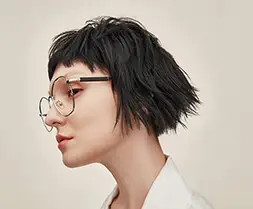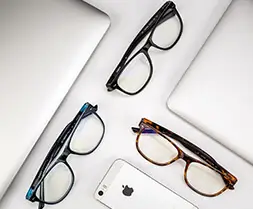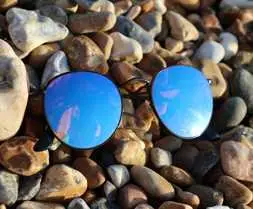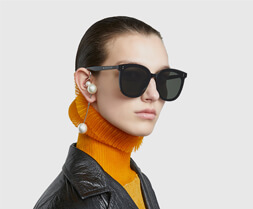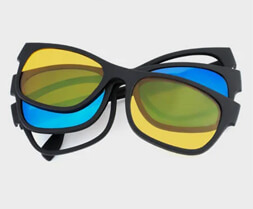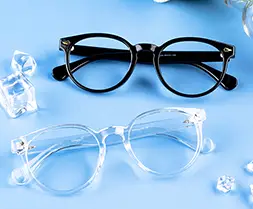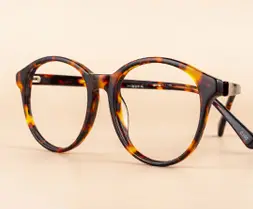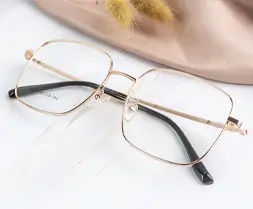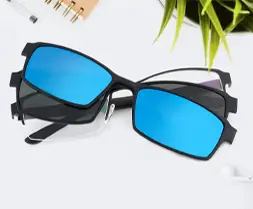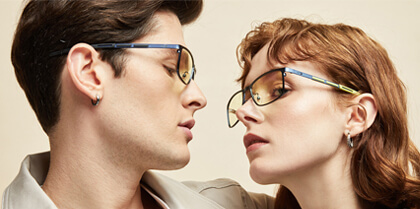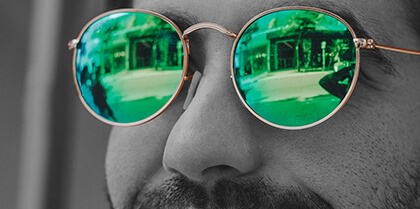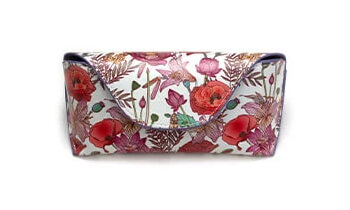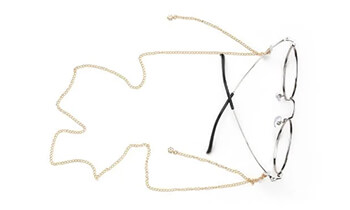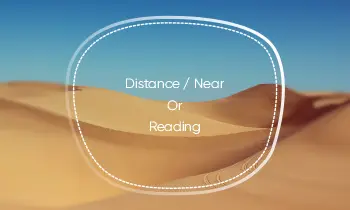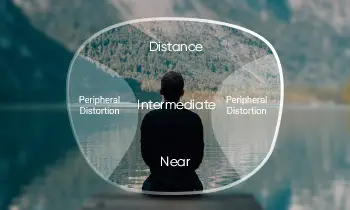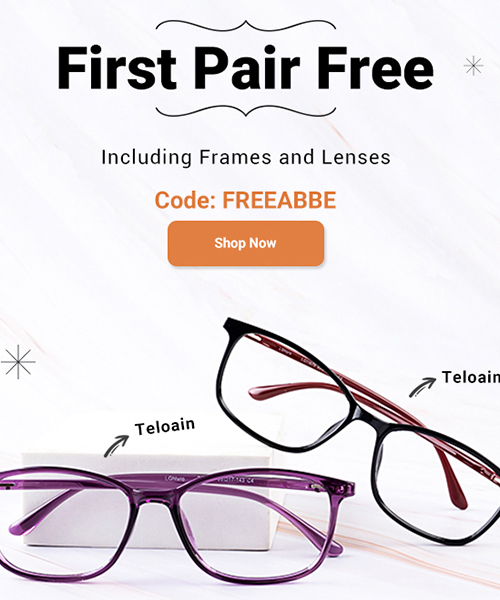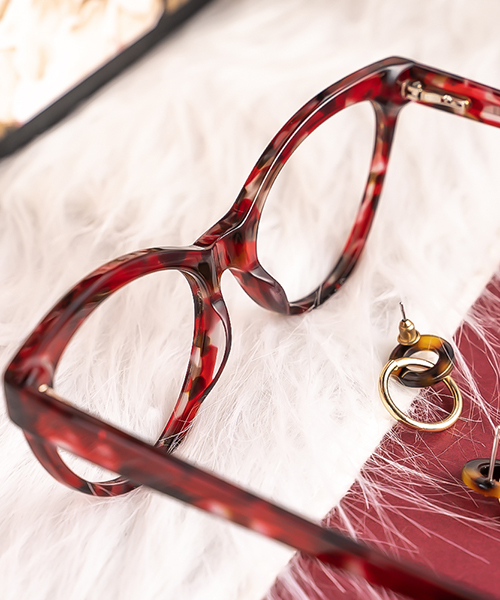In today's world, we spend a lot of time in front of screens, whether for work, entertainment, or socializing. However, this prolonged exposure to screens and digital devices may be harmful to our eyes and overall health. One concern is blue light, which is emitted by digital screens and LED lights. In this article, we'll explore what blue light is, its effects on our eyes and health, and how blue light eyeglasses can help.
What is Blue Light?
Blue light is a type of high-energy visible (HEV) light that is emitted by the sun and digital screens. It has a short wavelength and high frequency, which means it can penetrate deep into our eyes and cause damage to our retina over time. Blue light is known to disrupt our sleep-wake cycle, which can lead to fatigue, insomnia, and other sleep-related problems.
The Effects of Blue Light on Our Eyes and Health
Prolonged exposure to blue light may lead to digital eye strain, also known as computer vision syndrome. Symptoms include dry eyes, blurred vision, headaches, neck and shoulder pain, and fatigue. In addition, blue light exposure may also increase the risk of macular degeneration, a condition that can cause permanent vision loss.
Blue light may also affect our overall health by disrupting our circadian rhythm, which is our body's internal clock that regulates sleep and wake cycles. This can lead to sleep-related problems and increase the risk of obesity, diabetes, and other health conditions.
How Blue Light Eyeglasses Can Help
Blue light eyeglasses, also known as blue light blocking glasses, are specially designed to filter out blue light and reduce the amount of blue light that reaches our eyes. They typically have lenses that are treated with a special coating or made from a particular type of glass that blocks blue light.
1. Reducing Digital Eye Strain: Blue light eyeglasses can help reduce the symptoms of digital eye strain, such as dry eyes, blurred vision, and headaches. The lenses of these glasses are designed to filter out blue light, which can help reduce the amount of high-energy visible light that reaches the eyes. By wearing blue light eyeglasses, you can reduce the strain on your eyes and improve your visual comfort while using digital devices.
2. Improving Sleep Quality: Blue light eyeglasses can also help improve your sleep quality by reducing your exposure to blue light. Blue light is known to suppress the production of melatonin, a hormone that helps regulate sleep-wake cycles. By reducing the amount of blue light that reaches your eyes in the evening, blue light eyeglasses can help you sleep better and wake up feeling more refreshed.
3. Protecting the Retina: Blue light can cause damage to the retina over time, increasing the risk of macular degeneration, a condition that can lead to permanent vision loss. Blue light eyeglasses can help protect the retina by reducing the amount of blue light that reaches the eyes. This can help prevent long-term damage to the eyes and maintain healthy vision.
4. Enhancing Contrast: Some blue light eyeglasses are designed to enhance contrast and improve visual acuity. This can be particularly helpful for people who have low vision or are sensitive to bright light. By reducing glare and improving contrast, blue light eyeglasses can improve visual performance and reduce eye strain.
Blue light eyeglasses can be a helpful tool for anyone who spends a lot of time in front of screens or under bright LED lights. They can help reduce the symptoms of digital eye strain, improve sleep quality, protect the retina, and enhance visual performance. If you're interested in blue light eyeglasses, talk to your eye doctor or optometrist to see if they are right for you.
Conclusion:Blue light is a type of high-energy visible light that is emitted by digital screens and LED lights. Prolonged exposure to blue light can lead to digital eye strain, disrupted sleep, and other health problems. Blue light eyeglasses can help reduce the amount of blue light that reaches our eyes and protect our eyes and overall health. If you spend a lot of time in front of screens, consider talking to your eye doctor about blue light eyeglasses and how they can help you.


